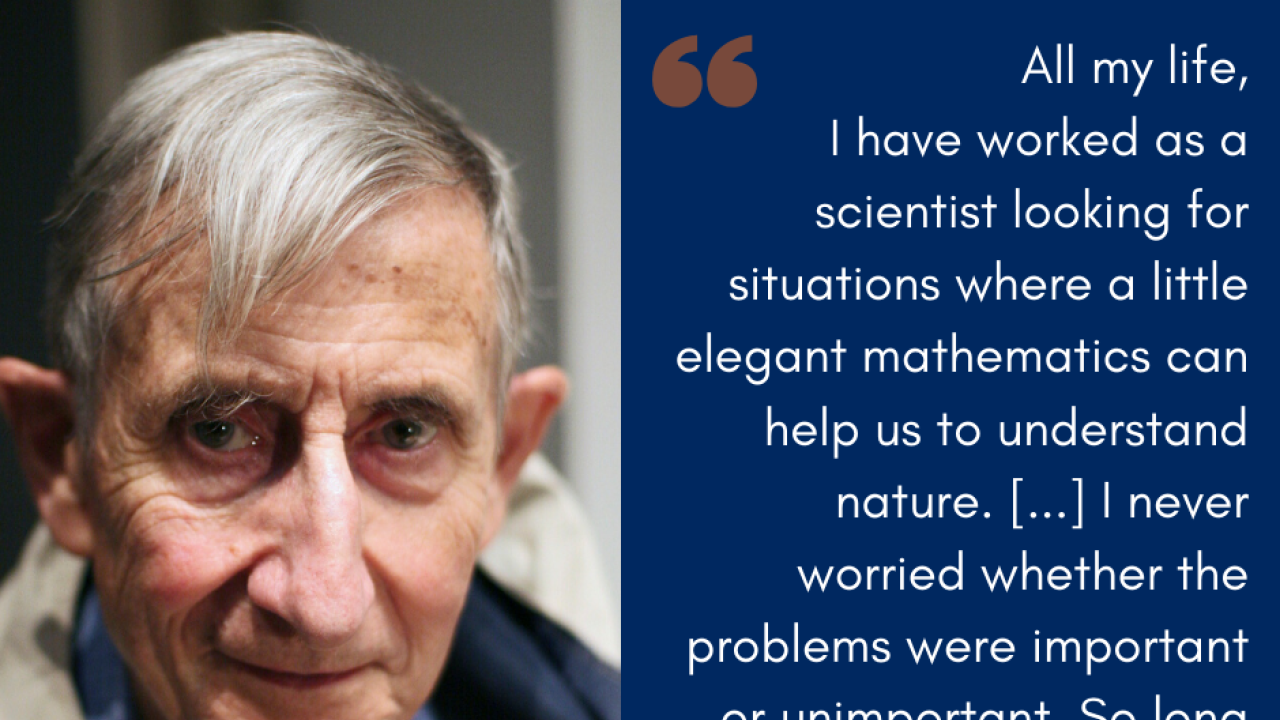
Why be a scientist? Nearly every scientist has a different answer and a different inspiration, drawn from varied careers, outlooks, and experiences. For its 40th anniversary in 2004, ICTP published the book One Hundred Reasons to be a Scientist, a collection of 100 essays from many eminent physicists and mathematicians with a connection to ICTP. The book is a source of many insights from the lives and careers of scientists, including Mildred Dresselhaus, Gerardus 't Hooft, Vera Rubin, and Francis K.A. Allotey. The authors discuss what led them to study science, the difficulties they encountered and overcame, and their passions and hopes for the future.
We are revisiting twenty of these stories highlighting one of them every week, sharing inspirations from the essays and showcasing the words of these great scientists. During the uncertainty of the current global pandemic, the words will hopefully help researchers feel less alone in their scientific path.
We are presenting this week the story of Freeman J. Dyson, an English-American theoretical physicist and mathematician. He is best known for his contributions in the fields of electrodynamics, solid state physics and astronomy. He was professor emeritus at the Institute for Advanced Study in Princeton and a member of the Board of Sponsors of the Bulletin of the Atomic Scientists.
In his essay, Dyson tells about his great passion for numbers and calculations, that arose from his first encounter as a teenager at school with the work of the great Indian mathematician Ramanujan and his theories on numbers. You can read it here.
If you want to learn more about Freeman Dyson, here you can watch a short interview by Quanta Magazine, or here a longer interview by Big Think.
Finally, if you are interested in learning about 99 more scientists and what inspired them, you can find the whole book in electronic format for free download on ICTP’s library website, in English, Italian and Urdu.
Here you can read the previous stories:
















